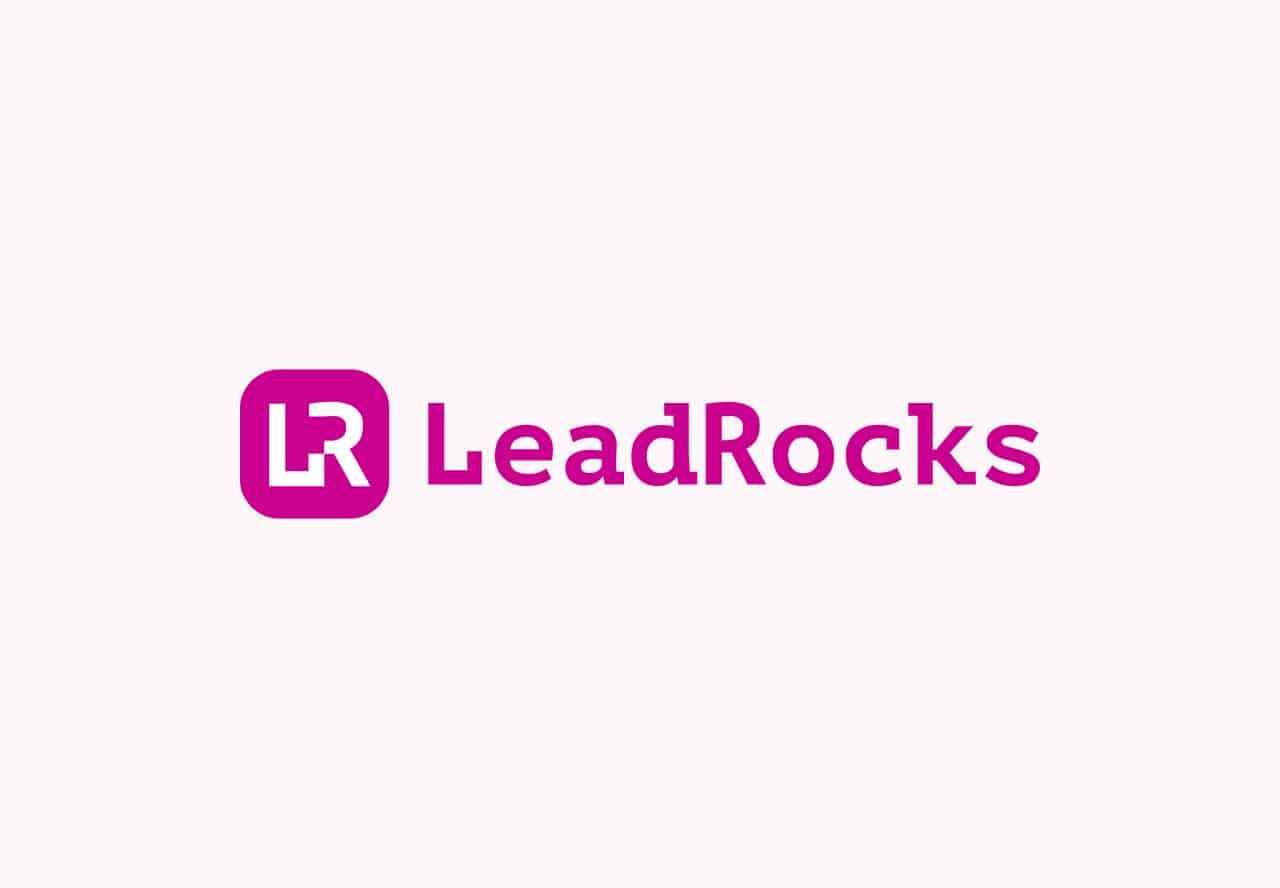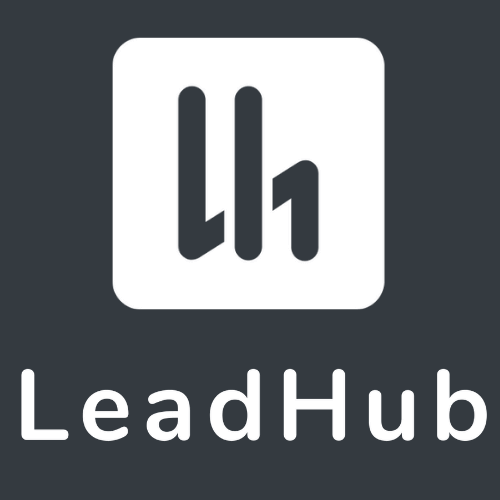Description

Salespanel

LeadRocks
Comprehensive Overview: Salespanel vs LeadRocks
Salespanel
a) Primary Functions and Target Markets
Salespanel is a B2B sales and marketing platform designed to help businesses streamline their lead generation, lead tracking, and sales processes. It offers the following primary functions:
- Lead Tracking and Scoring: Provides real-time tracking of website visitors, assigning scores based on their behavior to help prioritize leads.
- Segmentation: Allows for the segmentation of leads based on various criteria such as behavior, engagement levels, and demographics.
- Data Enrichment: Enriches lead data by pulling additional information from various sources to provide comprehensive profiles.
- Email Tracking: Helps track the engagement rates of email campaigns.
- Analytics and Reporting: Offers detailed analytics to measure performance across different metrics and campaigns.
Target Markets: Salespanel mainly targets small to mid-sized businesses (SMBs), digital marketing teams, and B2B enterprises looking to optimize their lead management and sales processes. It serves industries like SaaS, IT services, marketing agencies, and more.
b) Market Share and User Base
Salespanel has positioned itself as a user-friendly and cost-effective lead management solution primarily for SMBs. It may not have the massive market share of larger CRM or marketing platforms like Salesforce, but it maintains a steady and growing user base among small to mid-sized enterprises looking for comprehensive lead management solutions without the complexity.
c) Key Differentiating Factors
- Ease of Integration: Salespanel integrates with various marketing and sales tools, making it flexible for different setups.
- Real-time Tracking: The focus on real-time tracking allows for immediate insights and actions.
- Customization: Offers more customizable lead scoring and tracking capabilities.
LeadRocks
a) Primary Functions and Target Markets
LeadRocks is a B2B lead generation tool focused on providing accurate and actionable contact information to optimize outbound sales efforts. Its primary functions include:
- Contact Information Retrieval: Uses data mining techniques to retrieve emails, phone numbers, and other pertinent contact details of decision-makers within target companies.
- Database Access: Offers access to a large database of professional contacts.
- Email Verification: Ensures the accuracy of email addresses to reduce bounce rates.
- Integration with Sales Tools: Supports integrations with other sales tools to streamline outreach activities.
Target Markets: LeadRocks targets sales professionals, marketing teams, and recruitment agencies. It is particularly popular among businesses focusing on outbound sales tactics, such as cold emailing and telemarketing.
b) Market Share and User Base
LeadRocks is more niche-focused compared to broader CRM and marketing automation tools. It is a valuable asset for sales-driven organizations but does not compete in the same space as full-scale CRM platforms. Its user base primarily consists of sales teams in industries that rely heavily on direct outreach methods.
c) Key Differentiating Factors
- Focus on Outbound Sales: Specializes in providing the tools needed specifically for outbound sales, making it a go-to for such activities.
- Data Accuracy: Known for its data accuracy and comprehensive verification processes, which are critical in outbound sales for ensuring high conversion rates.
- Lead Information Depth: Offers in-depth information about leads, aiding in targeted and personalized outreach.
Overall Comparison
While both Salespanel and LeadRocks are involved in lead management, their primary focus differs significantly. Salespanel is more comprehensive, dealing extensively with lead tracking and analytics, ideal for businesses looking for an all-in-one tool for inbound and engagement-focused strategies. In contrast, LeadRocks zeroes in on data acquisition and outbound sales tactics, providing foundational support for cold outreach initiatives.
In terms of market share, both cater to their niche markets effectively but do not have the scale or reach of larger CRM platforms. Their user bases are likely comparable in size, with potentially more overlap in sectors that prioritize either inbound lead nurturing or outbound lead generation.
Contact Info

Year founded :
2018
+91 65063 67698
Not Available
India
http://www.linkedin.com/company/salespanel

Year founded :
Not Available
Not Available
Not Available
Not Available
Not Available
Feature Similarity Breakdown: Salespanel, LeadRocks
As of my last update, Salespanel and LeadRocks are both platforms designed to support sales teams and marketers with lead generation and management. Here’s a breakdown of their features and user interactions, noting similarities and unique aspects that set each apart:
a) Core Features in Common:
-
Lead Generation:
- Both platforms focus on identifying potential leads. They can help users discover contact information, company data, and other prospecting details.
-
Lead Enrichment:
- Salespanel and LeadRocks provide detailed information about leads. They pull in data from various sources to enrich the profiles of potential customers.
-
Segmentation:
- Both platforms allow users to segment leads based on specific criteria. This helps in targeting specific groups with personalized marketing efforts.
-
Integration with CRM:
- Both tools can integrate with popular CRMs, allowing for a seamless transfer of lead information to other platforms where deeper engagement might occur.
-
Analytics and Reporting:
- They offer analytics and reporting features to track the effectiveness of lead generation efforts, although the specifics of these features may vary.
b) User Interface Comparison:
-
Salespanel:
- Salespanel’s interface is designed to be intuitive, with a clean dashboard that prioritizes ease of use. It’s known for providing real-time data updates, which helps users make instantaneous decisions based on the most current information. Users often find that the visual representations and graphs allow for quick insights without the need to dig through data manually.
-
LeadRocks:
- LeadRocks tends to have a straightforward and functional user interface focusing on efficient lead discovery and enrichment. It lacks some of the more visually intuitive aspects of Salespanel but compensates with simplicity and focus on its core features. It suits users who prefer a no-frills approach and want to quickly navigate through lead lists.
c) Unique Features:
-
Salespanel:
- Visitor Tracking: One distinguishing feature is its ability to track website visitors and score them in real-time based on their behavior. This feature provides deeper insight into user intent and engagement.
- Behavioral Segmentation: Salespanel excels in behavior-based segmentation, allowing users to create dynamic segments that update automatically based on lead interactions.
-
LeadRocks:
- Database Access: LeadRocks is noted for offering a vast database of B2B contacts and companies, which can be filtered according to specific parameters. This feature is particularly beneficial for users who need direct access to potential lead lists.
- Easy Export Facilities: LeadRocks places strong emphasis on exporting leads into various file formats easily, allowing for off-platform analysis or integration with custom systems.
In conclusion, while both Salespanel and LeadRocks offer robust lead management features, Salespanel tends to focus more on real-time interaction and behavioral assessment, whereas LeadRocks excels in providing a rich database and straightforward export options. Depending on a team's specific needs—whether it's more real-time data and behavioral insights or direct database access and export capabilities—one platform might be more advantageous than the other.
Features

Not Available

Not Available
Best Fit Use Cases: Salespanel, LeadRocks
To determine the best fit use cases for Salespanel and LeadRocks, let's explore the distinctive features and functionalities they offer, and how they cater to various business needs.
Salespanel
a) For what types of businesses or projects is Salespanel the best choice?
-
B2B Companies: Salespanel is ideal for B2B companies looking to improve their lead management and enhance their sales processes. It allows these businesses to track customer interactions and gather data to inform sales strategies.
-
Digital Marketing Agencies: Agencies that need to monitor client campaigns can leverage Salespanel for tracking engagement and measuring the effectiveness of marketing efforts.
-
SaaS Businesses: Because SaaS companies often rely on data-driven insights and customer analytics, Salespanel helps them track user behavior and tailor their marketing efforts accordingly.
-
SMBs Seeking CRM Integration: Small and mid-sized businesses wanting to integrate lead tracking with their existing CRM systems will find Salespanel's integrations beneficial for a seamless sales workflow.
-
Businesses Focused on Data-Driven Decision Making: Companies that prioritize analytics and real-time data will benefit from Salespanel's robust tracking and reporting features, enabling targeted marketing and sales efforts.
LeadRocks
b) In what scenarios would LeadRocks be the preferred option?
-
Sales Teams Seeking Lead Generation: LeadRocks is particularly useful for sales teams concentrated on sourcing new, accurate, and high-quality leads for their campaigns.
-
Outbound Marketing Focus: Companies or projects that depend heavily on outbound marketing will find LeadRocks' database of contact information advantageous for reaching out to potential leads.
-
Startups and Small Businesses: For startups and small businesses with limited resources or teams, LeadRocks provides an accessible platform to quickly gather lead lists and kickstart sales efforts.
-
Companies Conducting Market Research: Businesses looking to explore new markets and gather information on potential clients or competitors can utilize LeadRocks to access a wealth of contact information.
-
Teams in Need of Scalable Lead Solutions: Organizations seeking scalability in their lead generation processes can benefit from the vast database and functionality LeadRocks provides to grow their contact lists efficiently.
d) How do these products cater to different industry verticals or company sizes?
-
Industry Verticals:
- Salespanel caters to industries that value customer journey insights, data analytics, and CRM integrations, such as technology, finance, and e-commerce.
- LeadRocks, with its focus on lead generation, is highly beneficial for industries like real estate, recruitment, and consulting, where contact outreach is critical.
-
Company Sizes:
- Salespanel is versatile and can adapt to both SMBs and larger enterprises that seek to streamline their lead management processes and enhance sales intelligence.
- LeadRocks is especially beneficial for smaller companies and startups due to its straightforward approach to generating lead lists, although it can serve larger companies looking to expand their prospecting efforts.
In summary, Salespanel excels in environments where customer insights and CRM integration are vital, while LeadRocks shines in scenarios centered around efficient and scalable lead generation. Each tool provides unique advantages aimed to enhance sales and marketing operations across various industry verticals and company sizes.
Pricing

Pricing Not Available

Pricing Not Available
Metrics History
Metrics History
Comparing teamSize across companies
Conclusion & Final Verdict: Salespanel vs LeadRocks
When comparing Salespanel and LeadRocks, it's essential to evaluate several factors including price, features, usability, and the specific needs of the user. Both platforms provide valuable services for lead management and sales intelligence, but their strengths and weaknesses vary.
Conclusion and Final Verdict
a) Best Overall Value:
The best overall value between Salespanel and LeadRocks depends on the specific requirements of your business. Salespanel tends to provide more comprehensive tracking and analytics tools, making it a better choice for businesses that require detailed visitor insights and data-driven decision-making. LeadRocks, on the other hand, is generally more cost-effective and straightforward, which might be ideal for smaller businesses or startups that need basic lead generation and contact information.
b) Pros and Cons:
Salespanel Pros:
- Advanced Tracking and Analytics: Offers deep insights into customer behavior, engagement, and lead scoring.
- Integration Capabilities: Compatible with major CRMs and marketing tools, allowing for seamless workflow.
- Personalization Features: Facilitates tailored marketing campaigns based on detailed lead information.
Salespanel Cons:
- Cost: Can be more expensive, especially for small businesses with limited budgets.
- Complexity: The rich feature set might be overwhelming for users who do not require extensive analytics.
LeadRocks Pros:
- Affordability: Generally more budget-friendly, with straightforward pricing plans.
- Ease of Use: Simple user interface and focus on core functionalities like lead generation and data scraping.
- Efficient for Basic Needs: Suitable for teams that need quick access to leads without extensive analytics.
LeadRocks Cons:
- Limited Features: Lacks in-depth analytics and visitor tracking compared to Salespanel.
- Scalability Issues: May struggle to meet the needs of larger enterprises or those requiring more comprehensive functionalities.
c) Recommendations:
For users deciding between Salespanel and LeadRocks, consider the following recommendations:
-
Assess Your Needs: Determine if your business requires in-depth analytics and tracking (Salespanel) or if basic lead scraping and contact information will suffice (LeadRocks).
-
Budget Considerations: Evaluate your budget. If cost is a primary concern, LeadRocks might be the more achievable option.
-
Growth Potential: Think about the scalability of your choice. If you anticipate rapid growth and need a platform that can scale with you, Salespanel could be more suitable.
-
Trial Both Platforms: Take advantage of any trial periods to explore the platforms' features and determine which aligns better with your workflow and goals.
Ultimately, the choice between Salespanel and LeadRocks should be informed by the specific demands of your business, your budget constraints, and the level of detail you require for lead management and conversion optimization.
Add to compare
Add similar companies



